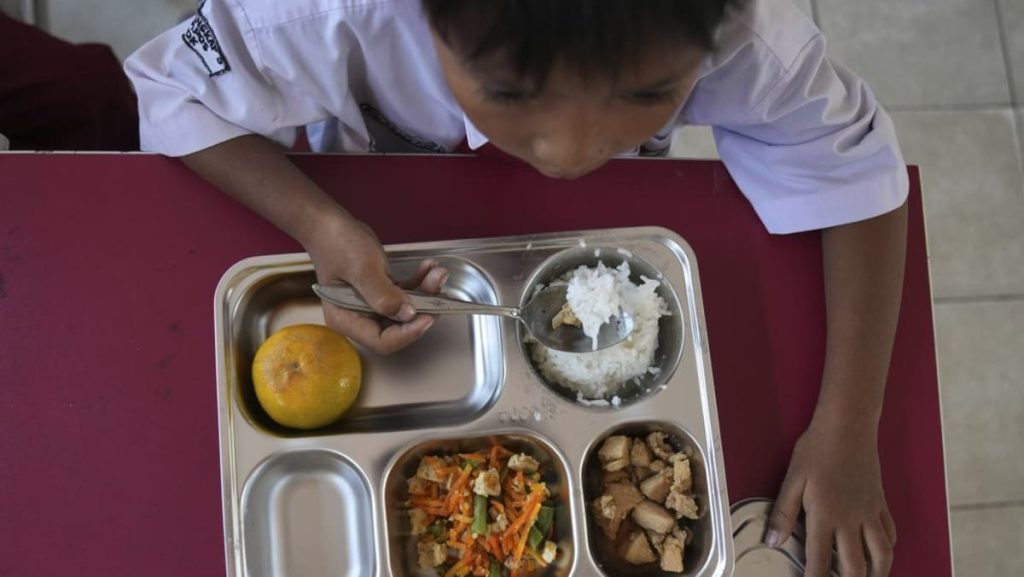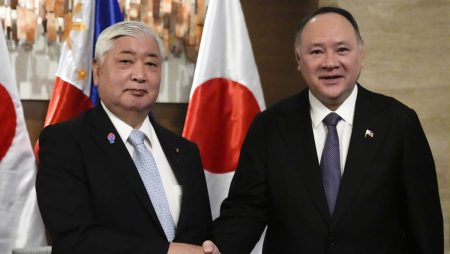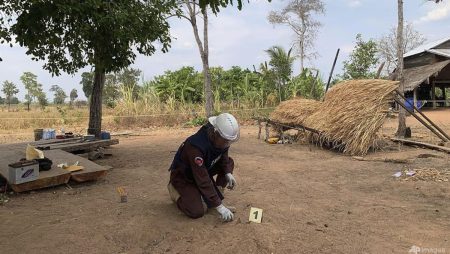Indonesia’s ambitious national school meal program, spearheaded by Defense Minister Prabowo Subianto, aims to provide free meals to millions of students across the archipelago. The program’s sheer scale is impressive, projected to procure vast quantities of staple foods like rice, chicken, beef, fish, fruits, vegetables, and milk. Thousands of kitchens are planned nationwide to facilitate the daily preparation and distribution of these meals. Subianto envisions this initiative as a crucial intervention, addressing nutritional needs and contributing to the overall well-being of Indonesian children. The program targets students from early childhood education to senior high school, aiming to cover one-third of their daily caloric requirements. This grand vision, while seemingly benevolent, has sparked significant debate and criticism from various sectors.
The operational logistics of such a massive undertaking present a formidable challenge. The program necessitates a complex and coordinated effort to procure, store, prepare, and distribute food to millions of students daily. The initial rollout, as exemplified by the delivery of 3,000 meal portions to a primary school in Depok, provides a glimpse into the daily operations. Dedicated teams are deployed to schools to ensure smooth meal distribution, highlighting the extensive manpower and infrastructure required for successful implementation across the country. The program’s reliance on a network of kitchens and distribution channels also raises concerns about food safety, quality control, and potential wastage, particularly in remote areas with limited infrastructure.
Beyond logistical hurdles, the program’s financial implications have drawn considerable scrutiny. Critics, including investors and economic analysts, question the feasibility of funding such a large-scale program, particularly given Indonesia’s existing fiscal constraints. Concerns have been raised about the potential strain on the state budget, the possibility of increased national debt, and the diversion of funds from other crucial sectors. Nailul Huda, an economic researcher, emphasizes the potential for misdirected resources and the undue burden on state finances. He argues that the program’s ambition could compromise the government’s broader economic goals, including the targeted 8% economic growth rate.
Further adding to the controversy are allegations of the program’s potential entanglement with industrial lobby groups. Critics suggest that the program, with its massive procurement needs, could become a vehicle for benefiting specific industries, raising concerns about transparency and potential conflicts of interest. The sheer volume of food required for the program necessitates significant contracts with food producers and suppliers, creating opportunities for preferential treatment and potential manipulation. The lack of clarity surrounding the selection process for these contracts further fuels skepticism about the program’s true intentions and its potential to become a breeding ground for corruption.
The debate surrounding the national school meal program highlights a complex interplay of factors, encompassing social welfare, economic realities, and political considerations. While the program’s objective of ensuring adequate nutrition for school children is laudable, concerns about its financial sustainability and potential for misuse raise serious questions. The program’s success hinges on effective implementation, transparent management, and rigorous oversight to mitigate potential risks and ensure its long-term viability. A comprehensive cost-benefit analysis and a clear articulation of the program’s funding mechanisms are crucial to address concerns and build public trust.
Ultimately, the national school meal program stands as a significant policy initiative with far-reaching implications. Its success or failure will depend on the government’s ability to navigate the complex challenges of implementation, address concerns about financial sustainability and transparency, and ensure that the program truly serves the intended beneficiaries – the millions of Indonesian school children. The program’s long-term impact on Indonesia’s social, economic, and political landscape remains to be seen, making it a subject of continued debate and close scrutiny in the years to come.










